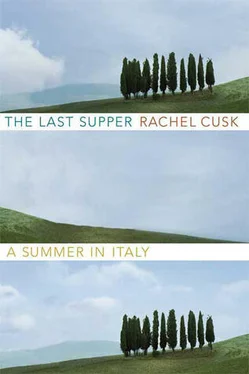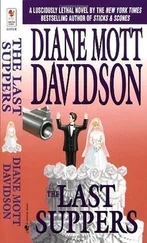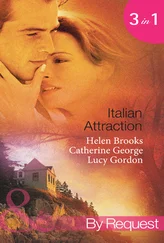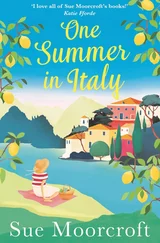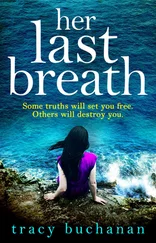The sky is steadily filling with cloud: it moves over the peninsula in a body, vast, like a dark glacier. For a while it builds around the bay, forming great cliffs at its edges that are gilded with paleness by the moon. Then the moon is engulfed and the cloud spreads out over the water. We get out and run back upstairs in our towels. Waiters are setting out dishes of nuts and olives in the hotel bar; the restaurant has lit its chandeliers, which blaze above the waiting tables. We dart up the grand marble staircase and along a corridor as wide as a boulevard to our room. But we meet no other guests; there is no one to shock with our attire, our dripping hair. And later, when we come down again, the blazing restaurant is still empty; the olives still sit mounded in their dishes. We do not intend to eat in the restaurant: a leather-bound menu on a gold plinth beside the door discloses the prices. But we stand there nonetheless, gazing through the doorway at the spectacle of its deserted grandeur, its inexplicable readiness, with its sparkling silver and crystal, its thick white napkins folded into pyramids, its tablecloths and fancy-backed chairs, for an event that seems to hover just beyond the boundary of perception. It is as though a delegation of ghosts is expected, or as though the notion of wealth itself is tonight to be honored and served, by the proud waiters who move among the tables making minute adjustments to the position of a glass or a fork.
Outside a warm wind is blowing. The sea is a field of dark inflections; the boats rock sleepily on their moorings. We walk along the road, into Santa Margherita, and find a table at a packed little place by the port, where the heat and laughter and the smells of cooking, the deep wooden shelves of beautiful wines, the baskets of rough bread, the old padrone in his stained apron, the faded color photographs of Italian landscapes, the glass cases of lemon tart and tiramisù , seem to distill all our manifold experiences into themselves; to become representative, even of things that bear no resemblance to them. Here are our travels, transitory but alive; here, again, is the reality, the moment that breaks and foams. We will not always live like this. We are going home, to work, to settle down, to send the children to school. Later, their teacher is discomposed by their lack of familiarity with the conventions of the classroom. They have forgotten their maths, or perhaps it is merely that they have forgotten their place among their peers. They have forgotten how to live anywhere but at the center of experience. Everything that now seems so real will soon be suspended; soon, the other reality will be unwrapped and reassembled. They are so different, these two realities. The first is the reality of the moment, of the sky as it looks tonight over Santa Margherita, of the spaghetti alle vongole and the satirical face of the padrone and the eczematic reproduction of Leonardo’s Last Supper that hangs in a cheap gilded frame beside our table. And the other: what is the other?
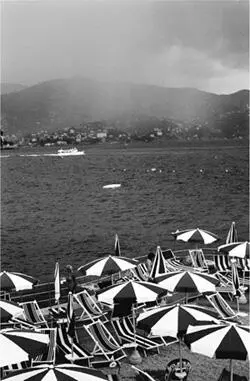
Beyond the steamed-up windows the storm breaks over the port. The water rushes down, hurling itself on the paving stones. It cascades off the awnings and runs in brown rivers along the gutters. Walking home, we are soaked to the skin, but later, standing on our balcony, we watch branches of lightning illuminate the tossing surface of the sea, jagged paths of electricity that struggle briefly to find some route into the earth, and in their failure brilliantly expend themselves and are extinguished.

The children have made two friends: we go out to breakfast on the hotel terrace to discover that they have affianced themselves to the daughters of an American millionaire with a pockmarked face and small blue eyes that look wearily at something over your shoulder. The Americans are at the Miramare for a fortnight, and our children are the first playmates they have found since their arrival a week earlier. The mother comes across to look us over. She is tall, powerfully built, with a slouching, cowboyish gait; but she is strangely pale and flaccid-looking. She too has a weary, offhand demeanor: she stands beside her husband and the two of them tell us about their tour of Europe, reeling off a list of countries and capital cities with a striking lack of animation, so that Paris and Prague seem to deflate a little before our eyes. We are still struggling to digest the notion of two whole weeks at the Grand Hotel Miramare. What strange, inexplicable luxury! The sun is shining once more: the other guests have come out for breakfast on the terrace. There are one or two bejeweled old ladies with tiny, fretful dogs, but otherwise they do not compose a particular type. They are all different, and they are all rich. The American woman does display a minor inconsistency: unlike the others, her clothes look as though she has worn them at least once before.
The children want to go to the beach club — their new friends have told them all about it. Apparently, the hotel has a private beach, directly below. This is where the Americans have been spending their days. The two sets of children cling onto one another, as though we might attempt to tear them asunder. The Americans have been on the road almost as long as we have, far from the society of other English-speaking children, and all four girls have the hunger of émigrés for the forsaken world, the world of friendship. It is as though they have encountered fellow citizens from the homeland, the old country. Girls their own age! A whole familiar, vanished way of life is suddenly present to them once more, with its particular references and language and atmosphere. They want to speak it, this language; they want to reminisce; they want to go to the beach club.
The Americans ask when we are leaving. Earlier, the man at the desk told us gravely that we were free to stay all day and make use of every hotel facility, but this offering does not satisfy the Americans. I watch them weigh it up, the day and its profits: they had been planning to go to Portofino for lunch. It is not a sound investment, their relationship with us. There are no long-term dividends. They are disappointed, almost angry. Our stock has no value: a measly day is all it’s worth. The father is inclined to jettison us straightaway. He wants to go to Portofino, as agreed. Instantly his daughters are distraught, almost tearful: they have a white, strained look about them that causes my own children to fall silent and gaze at them anxiously. The mother speaks. She is unemotional: she seems to stand in great desolate prairies of neutrality. She says that they will go to Portofino later, at four o’clock. Until then, the girls are free to be at the beach club. At four o’clock she will expect them to come without being told. She herself is going to go and lie down. She goes, and we are left with the father. There is only one thing for it: we offer to take charge of the children, and return them to the hotel at four. He nods curtly. He has got a good deal after all. Desire has been swabbed away from him: spongelike, we have absorbed the embarrassment of the whole situation. He walks slowly back to his table and picks up his copy of the Herald Tribune .
At the beach club there is a marine trampoline, riding out on the waves. The sea is ebullient, after the storm. All day the children swim out, and are dashed deliriously back onto the beach. They bounce madly on the trampoline. They have funny conversations, which I overhear in fragments from behind the cover of my book. The Americans have a friend in England called Sophie. Do we know her? I hear my daughter talking about her best friend Milly. Do they know Milly? She’s so nice.
Читать дальше
